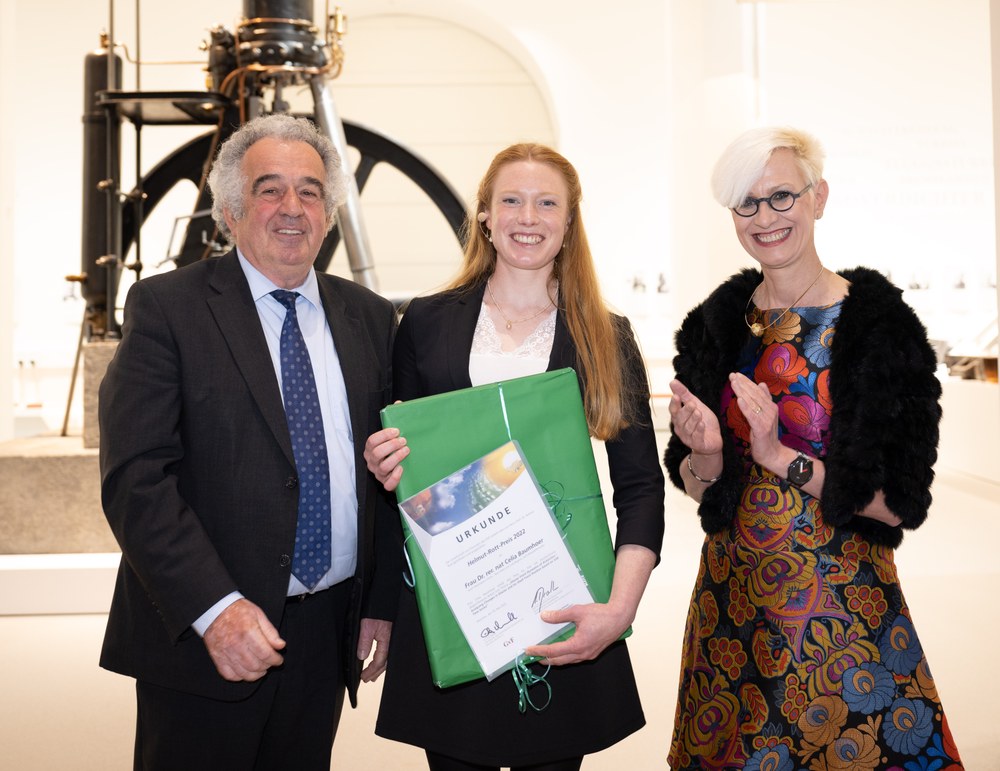EOC scientist receives Helmut Rott Prize
The EOC scientist Dr. Celia Amélie Baumhoer was presented with the 2022 Helmut Rott Prize on May 16, 2023. This prize is awarded every two years for outstanding dissertations closely associated with remote sensing of the cryosphere.

In the context of her dissertation, Ms Baumhoer investigated how Antarctic ice shelf fronts have altered and the role played by climate change. Three quarters of the Antarctic coastline is enclosed by ice shelves that form the floating continuation of the Antarctic ice sheet. Because of their restraining forces they act as an important regulator for future sea level rise.
Applying Artificial Intelligence (AI) to interpret large amounts of data, the EO scientist could for the first time automatically detect ice shelf fronts for the entire Antarctic in radar satellite data. With the approach she developed, innovative data records could be generated that provide information about monthly changes in Antarctic glacier and ice shelf dynamics. This leads to an entirely new understanding of the dynamics of calving fronts, since traditional manual mapping is too slow for detailed analysis of today’s masses of satellite data. The newly generated data records revealed, for example, the beginning break-up of the Conger ice shelf (East Antarctica), which has in the meantime completely collapsed. In addition, the methodology has been so developed that the entire Antarctic coastline can be derived. The results were correlated with existing coastline data products from earlier satellite missions so that for the first time changes in the extent of the entire Antarctic ice sheet could be quantified for the past 20 years. Subsequently, a wide variety of climate data were analysed to identify the environmental factors that significantly influence the extent of ice shelves. These include, for example shorter periods of sea ice cover, higher sea surface temperatures, snowmelt, intensified west winds (which allow the upwelling of warm circumpolar deep water), and positive phases of the Southern Annular Modes (SAM, an atmospheric variability of the Southern Hemisphere).
The findings of the doctoral dissertation make an important contribution to Antarctic research, are already being requested internationally, and have been incorporated in the operationally generated “IceLines” product available as a EOC Geoservice.
